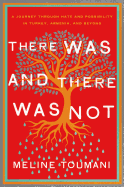
In 2005, Armenian-American journalist Meline Toumani traveled to Turkey--a place she had previously known only as "a terrifying idea"--with the intention of studying Armenia-Turkey relations for a month or two, three at the most. She stayed for two years. The result is There Was and There Was Not: A Journey Through Hate and Possibility in Turkey, Armenia and Beyond, an engaging and deeply personal exploration of ethnicity, nationalism, history and identity.
The conflicting Armenian and Turkish narratives regarding the massacre of Armenians in the Ottoman Empire in 1915 defined the Armenian diaspora community of Toumani's childhood; Turkey has historically denied that the massacre occurred or minimized the scale of the deaths. The Armenian community focuses substantial energy on campaigns designed to pressure the Turkish government to recognize the massacre as genocide. Toumani had reached the point where the dominance of the genocide narrative felt like an artistic and emotional chokehold. She set out to Turkey in an attempt to answer two questions: How could she honor her history without being suffocated by it, and why do Turks cling to their version of the events of 1915?
Over the course of the book, the clear-cut oppositions with which Toumani begins her project become more nuanced. Even the unity of the Armenian community itself becomes more complex as she examines the different concerns of the diaspora. There Was and There Was Not is neither a history of the genocide nor an examination of its political ramifications for the modern world. It is the story of one woman's attempt to understand her community, its fundamental assumptions, and herself. --Pamela Toler

